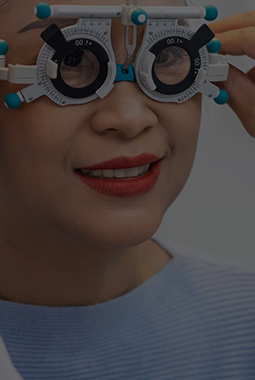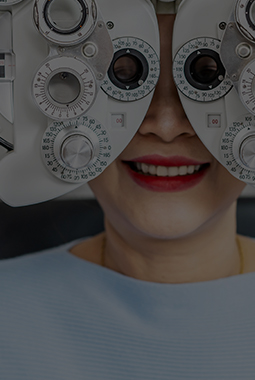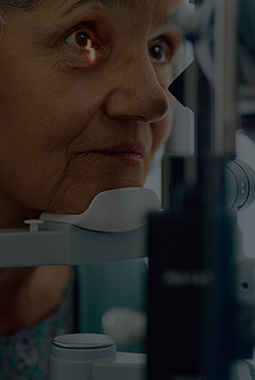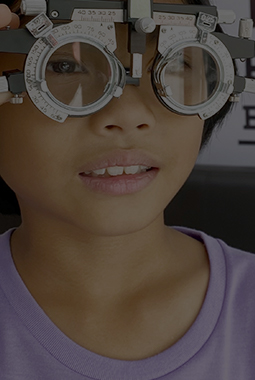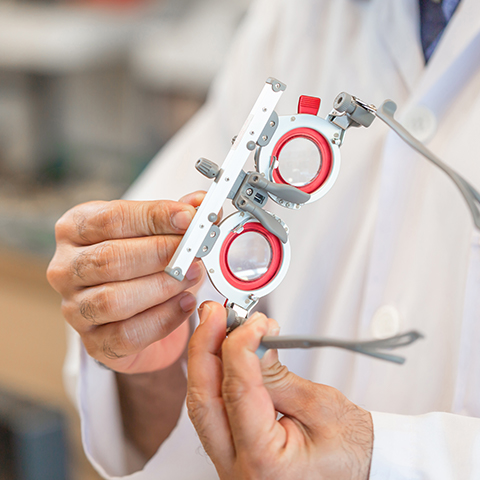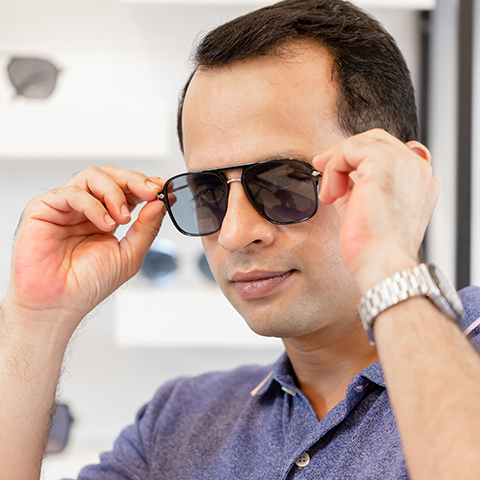We Prioritize Your Eye Health to Help You See Clearly & Stay Healthy
Your eyes are your windows to the world, and at Riverstone Eye Care, we’re committed to helping you keep them healthy.
Regular eye checkups are just as important as your annual physical. They play a crucial role in detecting and managing common eye diseases early on. It’s like checking your blood pressure regularly—some signs of good health can only be seen through diagnostic testing.
Our eye doctors don’t just focus on how clearly you can see without glasses but also on how well your eyes are functioning.
Schedule your next eye exam today so we can help preserve your vision.
Book an Appointment
We Educate to Help You Understand What We See
At Riverstone Eye Care, we believe in a patient-centered approach. We’re dedicated to educating you about your eye health and working with you to develop a personalized treatment plan. Our goal is to help you feel confident to make informed decisions about your eye care.
Your vision matters to us, and we’re here to support you every step of the way.
How We Identify & Manage Eye Disease
The way you see the world depends on a network that connects your eyes to your brain. Even small changes to the eye or nerve tissue can gradually impact your vision or eye health.
The tricky part is that many of these changes don’t exhibit early symptoms, so you might not notice any vision loss until it becomes severe.
Diagnostic technology plays a crucial role in identifying these subtle changes. Regular eye exams allow us to monitor your eye health, detect early signs of eye disease, and personalize management or treatment strategies based on these detailed observations.
Optical Coherence Tomography
Optical coherence tomography (OCT) works like an ultrasound for your eye but uses light waves instead of sound. Instead of just taking a picture of the eye’s surface, an OCT scan can give us a detailed cross-sectional view of your retina, optic nerve, and back of the eye.
OCT can help us spot eye conditions early on, like macular degeneration, glaucoma, and diabetic eye disease.
Visual Field Testing
A visual field test (perimetry) measures all areas of your eyesight, from what’s directly in front of you to your side vision. During this test, you’ll look straight ahead while lights flash on in different parts of your field of view.
Visual field testing helps us identify conditions that can impact the range you can see, such as glaucoma, neurological conditions, and stroke.
Digital Retinal Imaging
Digital retinal imaging lets us noninvasively take pictures of the inside of the eye. We can capture detailed images of the retina, optic nerve, macula, and blood vessels.
Retinal imaging is essential in diagnosing and managing conditions such as diabetic retinopathy, age-related macular degeneration, and retinal detachment. It can also help us monitor signs of high blood pressure and diabetes.
Cataracts
A cataract is a cloudy spot that forms when the proteins in the eye’s lens break down, leading to blurry vision. Cataracts are a natural part of aging but can form early due to eye disease or eye injury.
Cataracts can also cause:
- Poor night vision
- Faded colours
- Glare or halos around lights
We diagnose cataracts through a comprehensive eye exam that includes a visual acuity test and a dilated eye exam. Treatment typically involves surgery to replace the cloudy lens.
Glaucoma
Glaucoma is a group of conditions that damage the optic nerve. The damage is typically gradual, causing no early symptoms but leading to complete blindness. There are many types of glaucoma, with most related to increased eye pressure.
We can diagnose glaucoma with comprehensive eye exams that include measuring eye pressure and examining the optic nerve. Treatment usually involves prescription eye drops, oral medications, laser treatment, or surgery.
Macular Degeneration
Macular degeneration or age-related macular degeneration (AMD). It’s a leading cause of blindness in adults age 50 and older.
AMD affects the macula, the part of the eye that controls sharp, central vision. Vision changes might not be noticeable in the early stages, but can gradually lead to:
- Blurred central vision
- Straight lines appearing distorted or wavy
- Dark spots or missing areas in vision
We diagnose this condition through routine eye exams. Treatment may involve vitamins, laser therapy, or injections.
Dry Eye Disease
Dry eye disease is a common condition caused by too few or poor-quality tears. Your eyes need a consistent layer of tears to nourish the eye and keep it clear.
Dry eye can cause:
- Stinging, burning, or scratchy sensations
- Blurry or impaired vision
- Sensitivity to light
- Frequent eye infections
- Eye fatigue
- Watery eyes
We use tests that measure tear production and quality to diagnose this condition. Treatment options range from over-the-counter eye drops to prescription medication or procedures.
Diabetic Eye Disease & Diabetic Retinopathy
Diabetic retinopathy is a complication of diabetes that affects the eyes. It’s the most common cause of legal blindness in adults. Vision loss occurs gradually, and symptoms can include:
- Seeing spots or floaters
- Fluctuating or double vision
Diabetic eye disease can also increase the risk of developing cataracts, glaucoma, and macular edema.
We can diagnose this condition with a comprehensive eye exam and monitor it with regular diabetic eye exams. Treatment usually involves managing underlying diabetes, laser treatment, or surgery.
Start Protecting Your Long-Term Vision Today
Preventative care can truly make a difference in your long-term health and vision. By scheduling regular eye exams, we can help you protect your sight and take the necessary steps to maintain it. Whether it’s adopting healthy habits or catching any issues early for effective treatment, we’re here to support you and your family.
With our comprehensive eye examinations and commitment to patient education, we strive to safeguard your vision.
Schedule your regular checkup at Riverstone Eye Care today.
Book an AppointmentOur Services
Visit Our Location
Come to our practice near the intersection of Cherrycrest Drive and Ebenezer Road. Parking is available just steps from our doors.
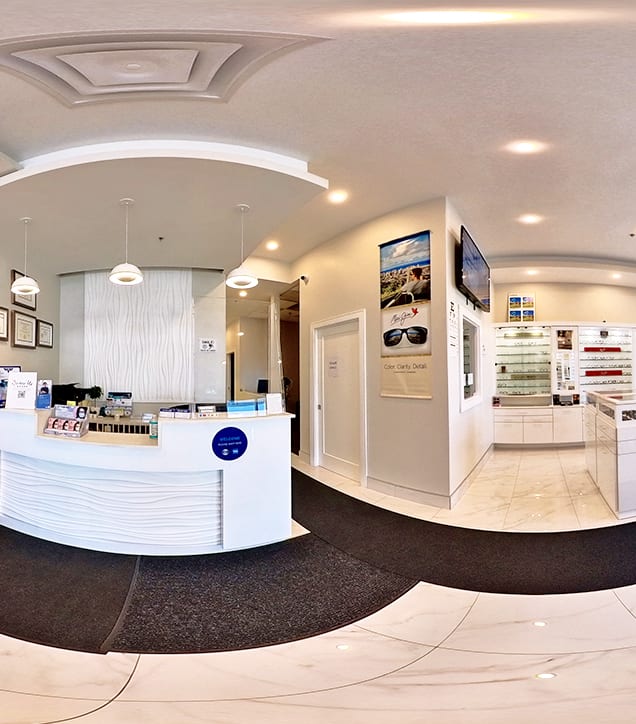
Our Address
- 25 Cherrycrest Drive, Unit 4
- Brampton, ON L6P 3W4
Contact Information
- Phone: 905-915-9255
- Email: info@riverstoneeyecare.com
Hours of Operation
- Monday: 11:00 AM – 6:00 PM
- Tuesday: 11:00 AM – 6:00 PM
- Wednesday: 11:00 AM – 6:00 PM
- Thursday: 11:00 AM – 6:00 PM
- Friday: 11:00 AM – 6:00 PM
- Saturday: 11:00 AM – 5:00 PM
- Sunday: 11:00 AM – 4:00 PM
Our Brands










